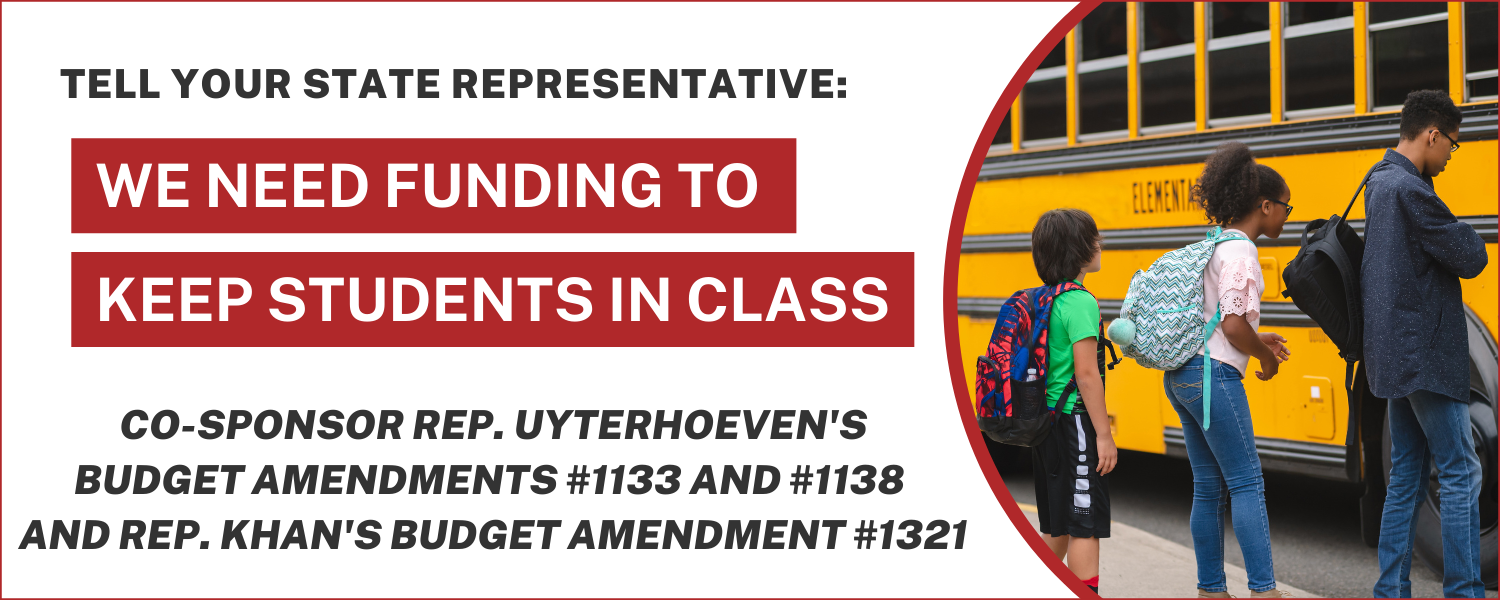The Good News
The Access to Counsel Bill was reported out favorably, a major milestone in the fight to ensure low-income residents facing eviction have access to legal resources and assistance! With Governor Healey including a line item to fund Access to Counsel in her proposed FY25 budget, this is an opportunity to push for the line item to be passed alongside the more comprehensive bill.
The Education Committee gave a favorable report to the Young Student Exclusion Ban Act, signaling continued support for this bill to address long-standing inequities and opportunity gaps in education. The early years of school are an essential time when children build their educational foundation and reading skills. Alongside our Chapter 222 School Discipline Coalition partners, we’ve been leading the charge on this initiative to keep Massachusetts’ youngest children in class where they are safe, supported, and available to learn.
The Education Committee also favorably reported out the School Interpreter Bill. Demonstrating the important intersection between language access and educational justice, this legislation would ensure families are provided with competent interpretation at school so limited English proficient parents can fully participate in and make informed decisions about their child’s education.
The Everyone Needs ID Bill received a favorable report from the Joint Committee on Transportation, bringing us another step closer to removing barriers that prevent youth experiencing homelessness from obtaining state ID! With state ID necessary to accomplish a host of everyday tasks and access services, this bill can help break the cycle of poverty and upheaval that too many young people find themselves trapped in.
And in exciting news, two of our first-time bills also received favorable reports!
- The passage of the CROWN Act back in 2022 banned race-based hair discrimination, helping prevent the criminalization of students of color. A bill we worked with Rep. Fluker Oakley and Sen. Gomez to file, which would ban suspension or expulsion for violations of rules relating to dress and grooming, received a favorable report. This legislation would build on the progress made by the CROWN Act, further disrupting the over-policing that Black and brown girls endure in school and ensuring Massachusetts classrooms are welcoming and inclusive spaces where all students can succeed.
- Underage youth may be experiencing homelessness alone and unable to seek their parents’ consent on matters for a number of reasons, such as abuse or family conflict over sexual orientation and gender identity. H.192/S.94, filed by Rep. Khan and Sen. Gomez, recognizes this reality and would ensure those between the ages of 15 and 18 years old can provide consent for themselves to access supportive services and meet their immediate survival needs.
The Delayed News
The following bills received deadline extensions, giving committees more time to consider them before they make their final decisions. It also gives us and our fellow advocates a chance to build more support, answer legislators’ questions, and convince lawmakers to report them favorably.
Our 2022 report, “I Just Want to Learn,” highlighted how a lack of diversity among teaching staff can contribute to students of color feeling disconnected, uncomfortable, and fearful of judgement at school. H.549/S.311 would help increase racial and ethnic diversity among school staff, which research shows can lead to direct improvements in educational outcomes for Black and brown students. The deadline has been extended to Friday, March 15.
Good policy starts with good data, and H.454/S.249 would require the Department of Elementary and Secondary Education (DESE) to publish student-specific education data in a way that can be easily cross-tabulated. Critically, this would enable educators, advocates, parents, students, organizers, and policymakers to better identify disparities and inequitable treatment. The deadline has been extended to Friday, March 15.
The foster care-to-homelessness pipeline is well-established – as much as half of Massachusetts’ youth homelessness population is the result of young people emerging from the child welfare system without support. H.157/S.65 would help disrupt this phenomenon by prohibiting the Massachusetts Department of Children and Families from taking foster children’s Social Security benefits for the state’s General Fund, thereby providing youth with greater financial independence as they age out of the system. The deadline has been extended to Thursday, May 2.
The Bad News
Now for the disappointments. The following bills were “sent to study” – essentially ensuring no further action on them this session, but leaving the door open to refile them in future years.
An Act to Create Access to Justice aimed to fill a gap in existing civil rights law by recognizing that when policies have a discriminatory impact – intended or not – Massachusetts residents must be able to take legal action to enforce their rights. The potential impact of this bill is broad and would affect environmental injustices, lack of language access services, the school-to-prison pipeline, lack of sufficient special education services, inadequate prison conditions for certain populations, and more.
An Act Relative to the Location of School Resource Officers recognized the research showing that police presence has no positive effect on school safety and would have required school resource officers be stationed off school grounds. Read more about this issue on our blog.
What Now?
We know when we lay out an ambitious legislative agenda that not everything is going to make it across the finish line. Grappling with that disappointment is a big part of this work, especially when we’re fighting for commonsense policy changes that address serious needs in our communities.
For bills sent to study – we regroup with our coalition partners. Do we want to refile the bill? Make any changes? Do our legislative sponsors have any feedback from the State House side? We map out what we can do in the meantime, whether that’s conducting deeper policy research or mobilizing in more communities, so we’re ready to hit the ground running next session.
As for the bills that did make it through: We keep going! Getting past Joint Rule 10 Day is a moment to celebrate but until the legislation is on Governor Healey’s desk, ready to be signed, our work is not done. Join MA Appleseed’s mailing list and follow us on Facebook, X (Twitter), and Instagram to stay updated on opportunities to take action in the coming months!














